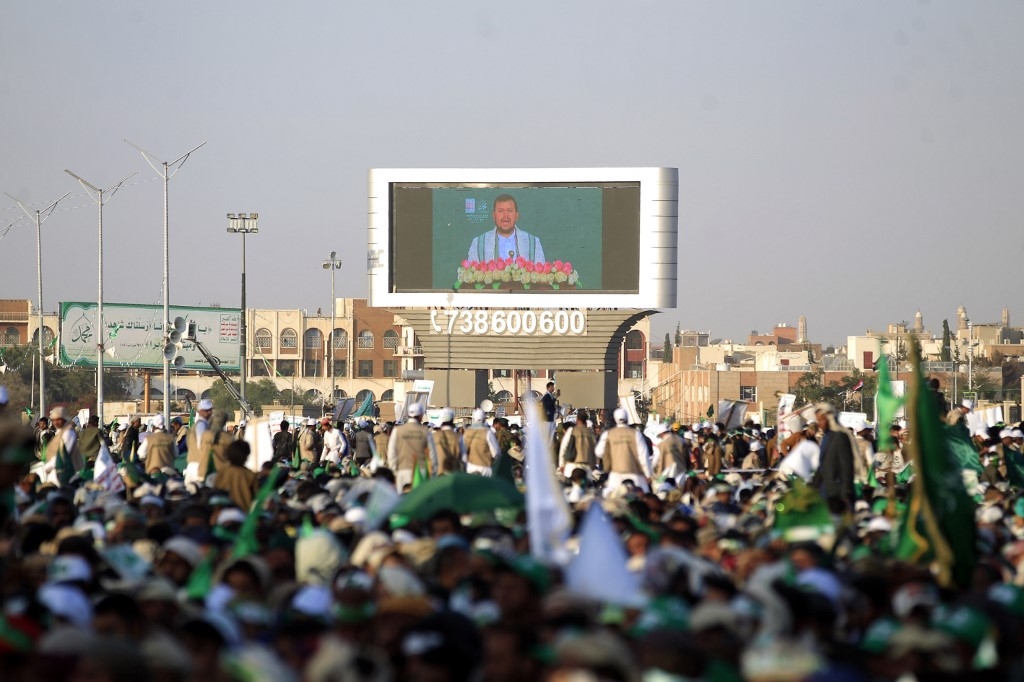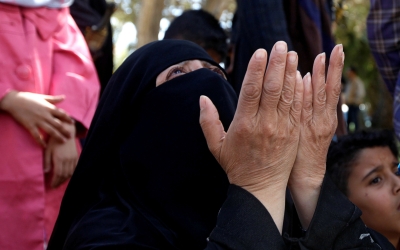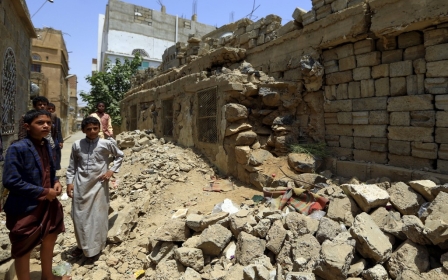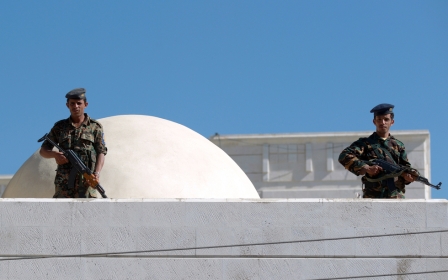US adds Yemen's Houthis to list of groups violating religious freedoms

The United States has designated Yemen's Houthi movement as an "Entity of Particular Concern" for violations against religious freedom, the State Department said in a news release.
The Houthi movement, along with 10 other groups, including the Nusra Front, the Islamic State (IS) group and Boko Haram, were added to the list on Friday by the US Commission on International Religious Freedom (USCIRF), the State Department said.
The commission, established by Congress in 1998, is charged with monitoring, analysing and reporting threats to religious freedom abroad. Being listed under this designation opens the door to US sanctions.
While the State Department on Friday did not explain why the Houthi movement was added to the list, the US, along with international rights groups, have voiced concerns in the past over the movement's treatment of the Bahai minority living in the region.
The Bahais are a small community in Yemen, making up just one percent of the country's non-Muslim population. Dozens of Bahai leaders and followers have been rounded up and imprisoned by the Houthis in recent years on charges rights groups say are based on religious discrimination.
The Bahais' leader in Yemen, Hamed bin Haydara, was arrested in 2013 and sentenced to death by a Houthi court last year after being charged with apostasy and spying for Israel. Haydara has filed an appeal. A ruling is pending.
The USCIRF, at the time, called on the Houthi court to overturn the death sentence and release Haydara, whom it called "a religious prisoner of conscience".
The Houthi movement has yet to respond on its official website to Friday's designation.
The State Department and the USCIRF did not immediately respond to Middle East Eye's request for comment.
'End persecution of Bahais'
In October, the USCIRF said it was alarmed over reports that a Houthi court in Yemen might deport and confiscate the assets of its Bahai citizens.
At the time, USCIRF Commissioner Andy Khawaja called on Congress and the Trump administration to "sound the alarm over the ruthless targeting" of Yemen's Bahais.
The USCIR also linked the Houthis' treatment of Bahais to Iranian influences.
"Iran must immediately cease its exportation of religious intolerance to Yemen and the Houthis must end their persecution of Bahais, immediately drop all charges against members of that community, and set free Bahais who have been unjustly imprisoned," USCIRF Chair Tony Perkins said in October.
Founded in Iran in 1844, the Bahai religion was banned by Tehran in 1982.
Other changes were made to the US religious freedoms designations, including the downgrading of Sudan from the list of "Countries of Particular Concern" to a watchlist of countries that have made improvements in the area of religious freedoms.
Sudan, the first country to be added to the designation, was under Omar al-Bashir's leadership when it was added and remained on the list for more than 20 years. It was downgraded as a measure of faith in the country's new government that took over in August.
Iran and Saudi Arabia were re-designated, remaining on the US's list of "Countries of Particular Concern".
Middle East Eye delivers independent and unrivalled coverage and analysis of the Middle East, North Africa and beyond. To learn more about republishing this content and the associated fees, please fill out this form. More about MEE can be found here.





